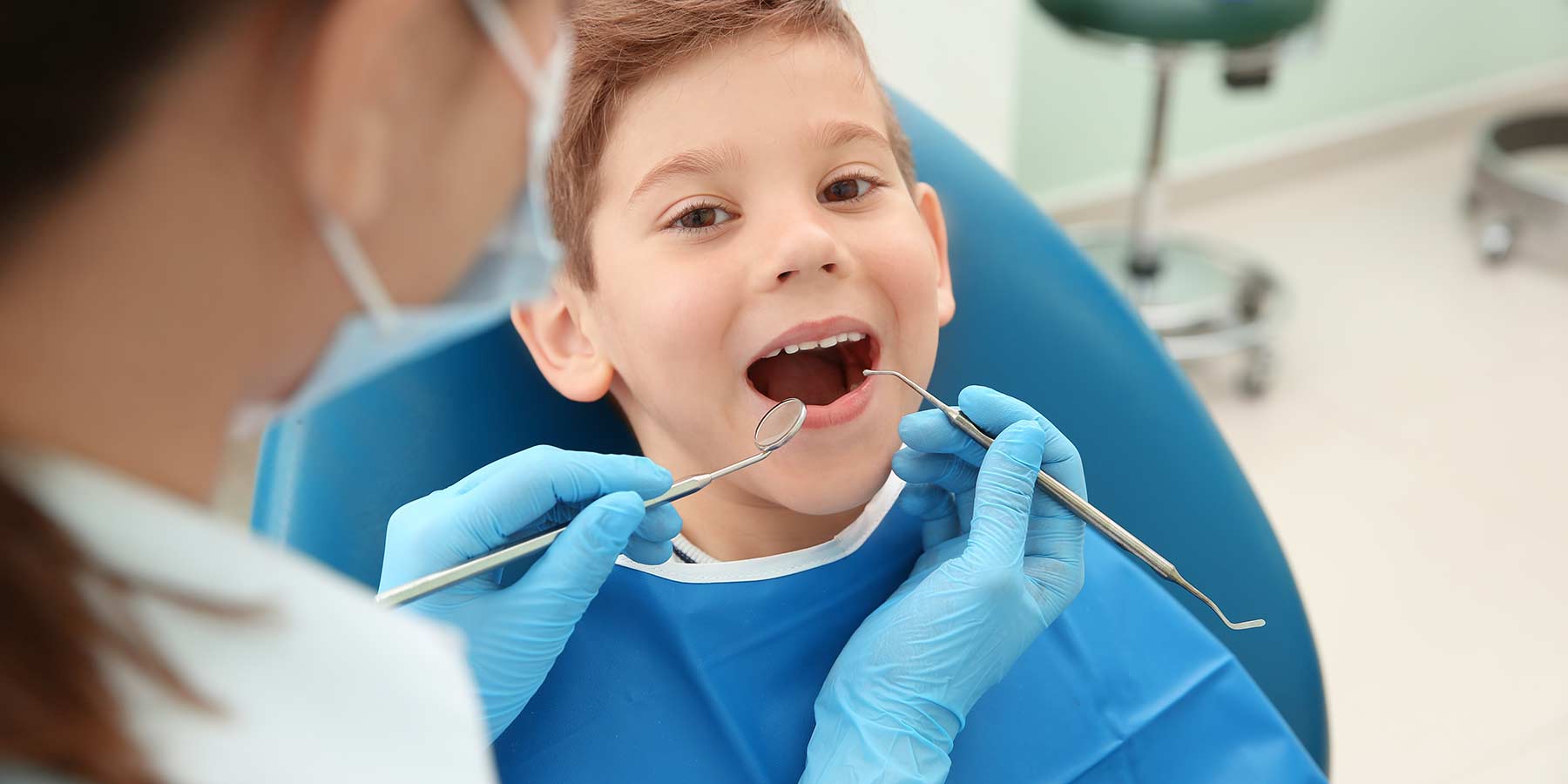
Visiting the dentist is essential in order to keep your child’s teeth healthy and promote excellent oral hygiene. At Dental Health Associates we strive to make those first visits to the dentist as fun and easy as possible. Below are some fun facts and tips every parent should know when taking your child to the dentist.
Your Child’s Primary Teeth
The primary teeth, commonly known as baby teeth, begin erupting through the gums between the ages of 6 months and 1 year of age. They are crucial to developing clear speech and learning to chew food properly.
Primary teeth are placeholders for the permanent teeth that are growing under the gums. The condition and health of baby teeth has a direct effect on the development of your child’s permanent teeth.
Teething
The teething process makes the gums sore and tender so oftentimes baby cries. Provide comfort by gently massaging the gums with a clean finger or offering a teething ring. If you don’t have one, use the back of a small teaspoon or a cold washcloth.
You’ll find it easier to chill several teething rings in the fridge, but be sure not to freeze them. Cold helps to numb the gums similar to an ice pack for adults. While crying in the middle of the night can be nerve-wracking, rest assured your little one will have a full set of primary teeth before their third birthday.
The First Dentist Visit
Take your baby to the dentist shortly before their first birthday, as recommended by the American Dental Association (ADA). Although the ADA advises this initial exam, your child’s first cleaning is not expected until ages 3 or 4.
At this first visit the dentist examines the child’s gums and the teeth that have erupted. It’s much easier to treat any problems now rather than allow them to develop into major issues that require expensive treatment. Your child will grow up accepting that other people need to occasionally examine their mouth rather than feel stress and fear of going to the dentist.
Harmful Habits to Avoid
One of the most prevalent problems that can occur in young children stems from using a pacifier or thumb-sucking once the permanent teeth start developing below the gum line. Constant sucking can adversely effect tooth alignment and proper growth of the mouth. There is a difference between your child simply putting their fingers or a pacifier in their mouth and actively sucking on them. Active sucking is what causes problems for the permanent teeth.
Permanent teeth start developing between ages 2 to 4 although they generally do not erupt until later. We advise stopping the use of pacifiers once the child reaches 2 years old, or when your dentist indicates there may be a problem. If you notice anything different with your child’s teeth or have any questions, don’t hesitate to ask your DHA dentist. Use the “Contact Us” page or give us a call for any questions or concerns.
Baby Tooth Decay
Baby tooth decay generally happens to the upper front teeth when the child is put to bed with a bottle. Baby formula, cow’s milk and fruit juice contain sugars that cause tooth decay as the child sleeps.
Avoid dipping the pacifier in sugar or honey as it will have the same adverse effect on your child’s teeth. Also, do not use eating utensils that have been in other people’s mouths as it introduces new bacteria to developing teeth.
Tips for Brushing Teeth
Brush teeth gently with a soft, small toothbrush designed for children. Once your child is able to spit properly, between ages 3 and 6, start using a pea-sized amount of toothpaste.
Supervise your little one to ensure they are brushing properly and completely spitting out the toothpaste instead of swallowing it. Develop good brushing habits now and your child can avoid serious issues, in the future.
Overall
Make dental care a fun time. Buy character toothbrushes, stickers, or set a timer. Make tooth brushing part of the daily routine, just like your child accepts getting dressed and putting on shoes before leaving the house. And remember, DHA is always here to help. Your child’s dental health is our primary concern.




